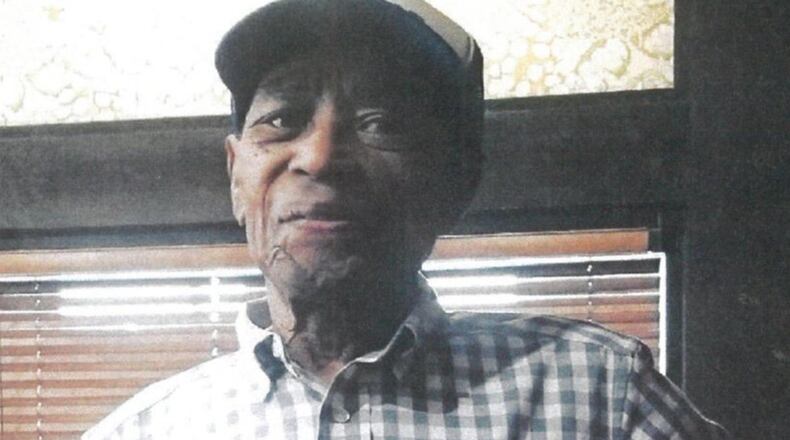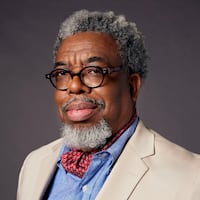By his daughter’s account, Frank “Bubba” King, a slick-fielding center fielder, never hit a home run in more than 20 years playing semipro and Negro League baseball.
“He said he never hit a homer, but said he can single and double you all day long,” said his daughter Anita Dianne King.
Between 1936 and 1958, King played for a host of local black teams, including the East Point Mets, East Point Bears, College Park Indians, Atlanta Cardinals and the Atlanta Black Crackers, which at one time was a member of the Negro National League.
King died Dec. 9, 2018 at Southern Regional Hospital in Riverdale. He was 95.
His funeral will be at 11 a.m. Tuesday at Murray Brothers Cascade Chapel, 1199 Utoy Springs Road in Atlanta. He will be buried with full military honors at the Georgia National Cemetery near Canton.
King was born June 23, 1923 to Ira Baity, Sr. and Estelle Ross King in East Point.
He spent three months in the Army in 1943 before being discharged because of an illness, his daughter said.
On April 23, 1951, King married Willie Pearl Benton, and the couple had four children. The two later divorced, and on Sept. 21, 1971, King married Ora Lee Jones and had five more children.
Both of his former wives have passed away.
King played baseball until at least 1958.
“He talked about baseball a lot,” Anita King said. “He always said when they played in Alabama they had to play the game, win, get on the bus and get out of town. Or they would have gotten locked up.”
James Jackson, who played with King with the East Point Bears, called him a “superstar.”
“He was not a slugger. He hit what became necessary, singles and doubles,” Jackson said. “He was one of the best outfielders I think I ever seen. From the crack of the bat, he knew what directions to go. I never understood how he did that. He played to win all the time.”
Raymond Doswell, vice president and curator of the Negro Leagues Baseball Museum in Kansas City, said players like King played an important, albeit somewhat forgotten role in the sport.
“For years, these semi-professional and industrial teams, especially dotted all over the southern United States, provided opportunities and training for young black athletes to later compete on higher levels in the formal Negro Leagues,” Doswell said. “Teams like the Atlanta Black Crackers held on just long enough, post Jackie Robinson’s successful integration of baseball, to continue providing entertainment to black fans. Dozens of men like Mr. King have slipped through the cracks of history because little information is known or have survived of these minor teams, but baseball is grateful that they kept the spirit and interest of baseball alive for future generations.”
After leaving the game, he took a job as a forklift driver for Food Giant, retiring in 1988.
Anita King said that in retirement her father became an avid fisherman and hunter, often coming home with deer, rabbits and possums to cook.
He was also thrifty. Anita King said her father had a system of collecting aluminum cans, dropping off bags at apartment complexes and encouraging people to use them.
“He collected so many aluminum cans that he brought two brand new trucks,” she said.
But his true love remained baseball. He coached baseball and softball and taught his granddaughter Anitra how to switch hit and continued to tutor his grandchildren in the game he grew up on.
He was also a regular at Atlanta Braves games.
One of his grandsons, Alfred Daniel Smith Jr., was a percussionist at Turner Field, entertaining fans with his drums before games, then pounding on a giant drum in the center field concourse during the games.
Aside from his daughter Anita Dianne King, Mr. King is survived by three other daughters, Jeanette Smith, Nedra Johnson and Pamela King, all from the Atlanta area; one son, Anthony King of Union City; and 18 grandchildren.
Two sons, Harold King and Danny Caldwell; and two daughters, Deborah King and Joyce Johnson, died previously. King was a member of Neriah Church in Union City.
About the Author
The Latest
Featured



